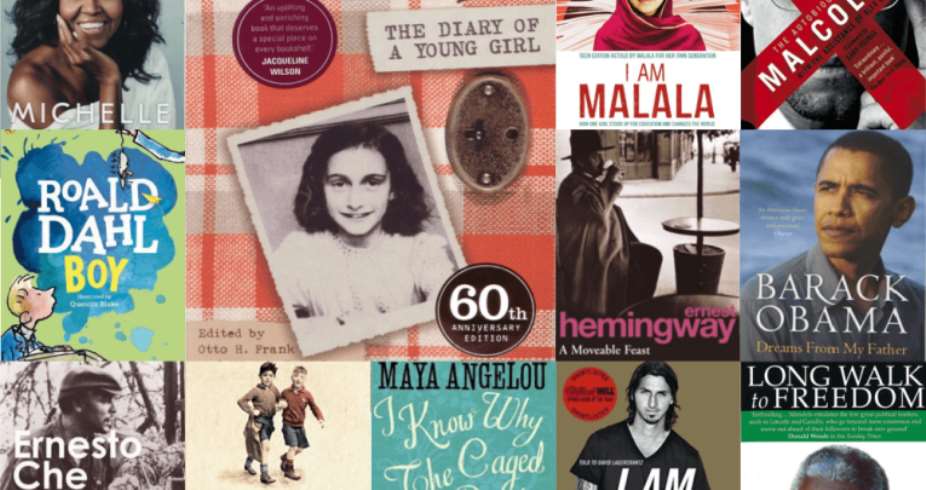To my fans and the worldwide public readers of my online articles, could you please honestly answer the questions as may be posed while reading this publication on “What is the interest for the public in reading autobiography or biography books?
This publication is mainly directed at clearing the possible misunderstanding to hover over a published semi-narration of one’s life story that could culminate in an autobiography.
Is there any benefit of the narration of one’s life story to the public in what is autobiography or biography? If yes, how? And, if no, why?
Why do some people purchase or read written autobiographies or biographies of others? What interests are there in such books or narratives for you as a public member buying, or reading those books?
Is it just about knowing more about the person, their humble beginnings to their present, or until they passed, thus, transitioned into ghost? Do such narrations of others’ life stories impact your life?
Before proceeding any further, let me pause to define autobiography and biography.
“Autobiography, the biography of oneself narrated by oneself. Autobiographical works can take many forms, from the intimate writings made during life that were not necessarily intended for publication (including letters, diaries, journals, memoirs, and reminiscences) to a formal book-length autobiography”.
Biography is “a book about a single person's life and work, but probably with a great deal, too, about their family and friends, relations and children, colleagues, and acquaintances”.
Again, what do you gain from reading or listening to the narration of one’s life story?
Autobiography or biography could contain a little talked about one’s family, parents, where they used to live and how they lived until the person’s current state or death. Right?
Let me be very specific here, mentioning a person I have come to like so much and would have him become the president of Ghana if I held the abracadabra wand. He is the person of Kennedy Agyapong (Hon.), the member of parliament for Assin Central constituency in the Central region.
Whenever he is invited to give a talk, he commences with narrating his humble beginnings; the ordinary public school he attended {Assin Dompem Local Authority (L/A) School}, how his schoolteacher father used to drink and beat him. He tells about his mother being a trader, selling her goods on a small table. He continues to talk about how immensely his stepfather helped him and how he is forever grateful to him, even in death.
After starting from there, he goes on to talk about his hustling life in Germany and the USA, his political life, and why the late Professor Emeritus Adu Boahene, then leader and presidential candidate of the New Patriotic Party, advised him to focus on his profession as businessman than seeking a ministerial position if NPP won the general election of 1992.
He then goes on to address the topic of his talk for which he has been invited.
Does the public gain anything from his narrations starting from his parents and school? Does the audience enjoy or benefit from the things said about his school, parents and political life before treating the actual topic for which he has been invited?
Are autobiographies or biographies made public the preserve of successful, powerful, and highly educated persons in societies?
Enough questions have already been asked so I had better end here to regain my bed as I am already dozing off.





 Ensure private schools employ professional teachers, not SHS graduates — Xandy K...
Ensure private schools employ professional teachers, not SHS graduates — Xandy K...
 Alan Kyeremanten was the brain behind Ghana Card not Bawumia — Hopeson Adorye
Alan Kyeremanten was the brain behind Ghana Card not Bawumia — Hopeson Adorye
 I'm not running for office for power prestige, I just want to solve Ghana’s prob...
I'm not running for office for power prestige, I just want to solve Ghana’s prob...
 Provide immediate assistance to our displaced residents — Oda Nkwanta residents ...
Provide immediate assistance to our displaced residents — Oda Nkwanta residents ...
 Send nurses abroad; it’s a better option than being unemployed in Ghana — NDC Pa...
Send nurses abroad; it’s a better option than being unemployed in Ghana — NDC Pa...
 Bawumia stole free tertiary education for Persons with Disabilities from NDC’s 2...
Bawumia stole free tertiary education for Persons with Disabilities from NDC’s 2...
 Ejisu by-election: Anger is bound to occur but return to your 'sweet home' — Nan...
Ejisu by-election: Anger is bound to occur but return to your 'sweet home' — Nan...
 Limited voters registration: Don't allow politicians to engage your minors for p...
Limited voters registration: Don't allow politicians to engage your minors for p...
 Ferry on Oti River breaks down; drivers and passengers stranded
Ferry on Oti River breaks down; drivers and passengers stranded
